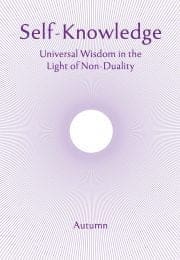Gerard Manley Hopkins
GERARD MANLEY HOPKINS (1844-1889) is generally considered to be a difficult poet, owing to the strangeness of his style and condensation of thought which obscures his meaning. But close study reveals the thought of a profound religious poet with the power to kindle the heart and uplift the mind of the reader.
Hopkins was born of a devout mother in a family with considerable artistic and literary talent. From an early age he developed a love of natural beauty and, as a boy, delighted in making sketches of all that his eye absorbed; but he soon changed his medium of expression to that of poetry and remained faithful to it. When he entered Balliol College, Oxford, at the age of 19, he was already considered to be quite a promising poet. At Oxford he was to encounter the aesthetic movement, whose adherents considered the pursuit of beauty and delight to be the chief end and object of life.
One can understand that Hopkins was attracted to this movement, especially as his tutor Walter Pater, whom he greatly admired, was one of its leaders. Pater held that the highest wisdom consisted in extracting the most intense enjoyment out of every moment as it passes; and this, he affirmed, is derived from the poetic passion—the desire for beauty and love of art for its own sake.
No doubt this sentiment found an answering echo in Hopkins’ poetical temperament. But he was not entirely convinced; and when Pater admitted that the result of such a philosophy would appear to be a loss of interest in the spiritual world, which would hold no appeal for one who was immersed in the delights of sense-perception, then Hopkins knew why he could not accept it. For there was a deeply religious element in his make-up; he could never sacrifice religion to the pursuit of beauty even though it held such a fascination for him. On the contrary, he resolved to discipline his wayward senses, since they threatened to impede his spiritual progress:
Be shellèd, eyes, with double dark,
And find the uncreated light.
This ruck and reel which you remark
Coils, keeps and teases simple sight,
he counselled himself. But it was no easy task for a poet, as he soon discovered. ‘I found beauty dearly and dangerously sweet’, he wrote later.
At this time, Oxford was the seat of a heated religious controversy between Protestant Liberalism and the Roman Catholic faith, with the ‘Middle Way’ of the Anglicans, which Hopkins then followed, struggling to maintain its dwindling supporters, who were gradually drawn to either one side or the other. Hopkins quivered in these cross-currents; he was striving to suppress the conviction which was growing stronger every day, that he was to become a Roman Catholic. For some time the conflict continued, until at last, quite suddenly, it was resolved, and he knew what he had to do. ‘When it came it was all in a minute’, he wrote. In 1866 he was admitted into the Catholic Church and two years later entered the Jesuit Novitiate.
The Society of Jesus practises a discipline based on the Spiritual Exercises of St Ignatius. For 21 years Hopkins studied and meditated on them. Here is an extract from the Exercises on ‘Principle or Foundation’:
Man was created for a certain end. This end is to praise, reverence and serve the Lord, his God, and by this means to arrive at eternal salvation.
All the other beings and objects which surround us on the face of the earth were created for the benefit of man, and to be useful to him as means to his final end...
Whence it follows that man ought to make use of them just so far as they help him to attain his end and ought to withdraw from them just so far as they hinder him.
It is therefore necessary that we should make ourselves indifferent to all created things... But we must desire and choose definitively in everything that will lead us to the end of our creation.
Hopkins had already tried to practise the negative side of this discipline, firstly by curbing the activity of his senses, and an even greater sacrifice: renouncing his poetry. Before entering the Novitiate, he destroyed, to the best of his knowledge, all that he had written, and determined to write no more, since his love of poetry so possessed him that he feared it would distract him from his spiritual purpose.
Subscribe or enrol for free guest access to read all of this article and Self-Knowledge online.
Already subscribed or enrolled? Log in:


